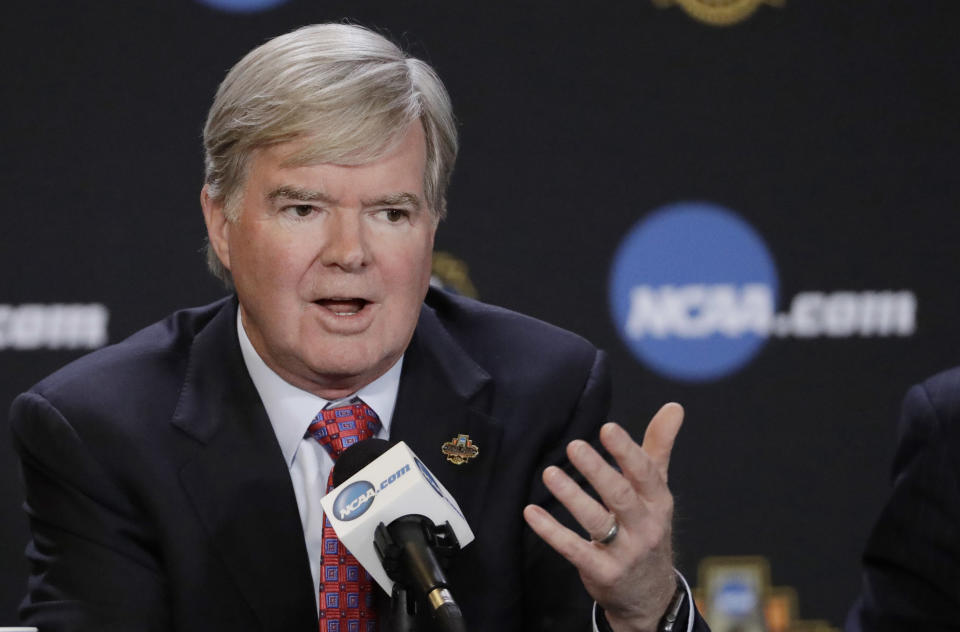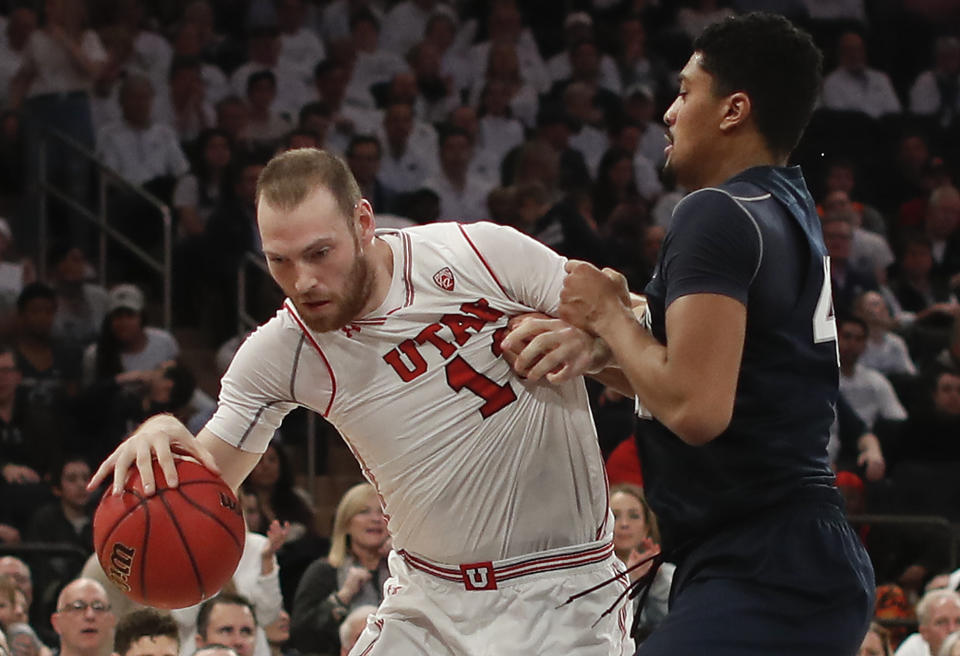NCAA's new transfer reform is a long overdue victory for athletes' rights

Three years after Utah State flatly denied his request for a release granting him permission to speak with other schools, David Collette can take solace that the torrent of negative publicity generated by his transfer saga and others like it has produced a positive outcome.
The NCAA announced a long overdue rule change on Wednesday ensuring that college athletes will no longer have to seek permission from their head coach or athletic director in order to gain the right to transfer to another school.
“This should have been the rule from the beginning,” Collette told Yahoo Sports.
“Obviously I’m happy a change was made. Nobody should have to go through what I did. Everything about the NCAA is a joke though They’re only in it for the money. The kids mean nothing to them.”
Collette’s lingering bitterness toward the NCAA is understandable considering the ordeal he endured after blindsiding Utah State with his decision to transfer only two days before the start of the 2015-16 college basketball season. Irate over the timing of the decision and suspicious that tampering played a role, Utah State coach Tim Duryea sought payback by refusing to grant Collette’s release, forcing the standout forward to pay his own tuition for the next two semesters and preventing opposing coaches from communicating with him or his family without violating NCAA rules.
The ensuing two-month battle between Collette and Utah State ended in unsatisfactory fashion for both sides. Limited in his options because he could not afford out-of-state tuition, Collette enrolled at Utah, where he started back-to-back years for the Utes, averaging 12.3 points and 4.5 rebounds in 22 minutes per game this past season as a senior.
“I don’t understand why Utah State would do this,” Collette told Yahoo Sports three years ago during the standoff. “If a guy’s not comfortable where he is or not happy, why not let him go? The coaches and administrators always talk about how they have their players’ backs. Well, obviously not. From what I’ve experienced, they do not have my best interest at heart whatsoever.”
Utah State’s alleged abuse of power was sadly far from unique in college athletics. Even more egregious examples emerged every year in football, men’s and women’s basketball and even the non-revenue sports.
In 2012, Wisconsin famously refused to grant standout freshman Jarrod Uthoff permission to contact with 30 other schools including every program in the ACC and Big Ten. That same year, Tulsa barred current NBA guard Jordan Clarkson from reaching out to six of the nine schools he sought permission to contact. And in 2014, Kansas State came under fire for denying star guard Leticia Romero’s request to transfer in the wake of the firing of Deb Patterson, the coach who recruited the freshman from Spain.
Given the publicity those situations received, it’s inexcusable that it has taken the NCAA so long to act. The NCAA should have realized sooner that it had to take the power to restrict transfers away from jilted coaches whose judgment was clouded by the frustration of losing a player they spent years recruiting. That system was like giving your ex-girlfriend veto power on who you should date next.
The new system approved Wednesday is a step in the right direction. Starting Oct. 15, schools will be required to enter the name of a potential transfer into a national database within two business days of the athlete revealing an intent to leave. Once the athlete’s name is in the database, other coaches are free to contact that individual.
The change could be just the first in a series of transfer reforms intended to grant more freedom to . athletes. There has been discussion about eliminating the rule requiring transfers to sit out a year, though nothing is yet imminent on that front.
To alleviate concerns of coaches wary of creating free agency in college athletics, the NCAA will allow conferences to “make rules that are more restrictive than the national rule.” The NCAA also intends to strengthen penalties for coaches caught tampering with a player whose name is not yet in the transfer database.
One potential issue so far left unsolved is how the current rule change will affect the APR, the metric the NCAA uses to measure a program’s academic performance. Many coaches fear that an increase in transfers could lead to more programs absorbing penalties for low APR scores.
Still, Wednesday’s rule change is a good one, albeit one that’s long overdue. Athletes like Collette are proud to have played a role in forcing progress to occur, yet they have a tough time lauding the NCAA for a reform they feel should have been enacted years ago.
Said Collette, “It’s hard to celebrate over something that already screwed me over.”

– – – – – – –
Jeff Eisenberg is a college basketball writer for Yahoo Sports. Have a tip? Email him at daggerblog@yahoo.com or follow him on Twitter!



